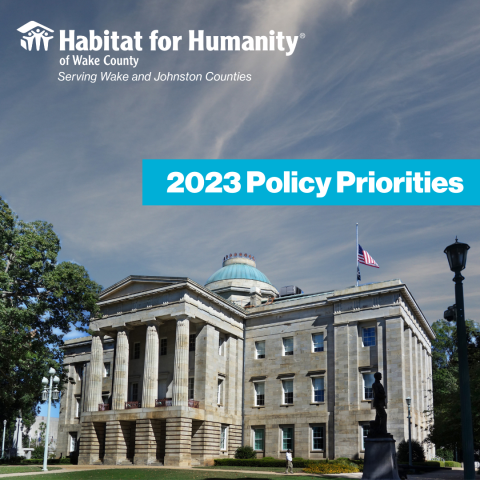Celebrating Women's History Month with our first female CEO
This month and every month, Habitat Wake celebrates the women who further our mission of bringing people together to build homes, communities and hope.
As we celebrate and reflect throughout Women’s History Month, we want to highlight our leader, and Habitat Wake’s first-ever female CEO, Patricia Burch.
